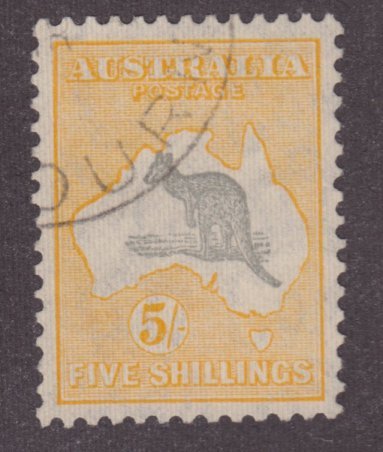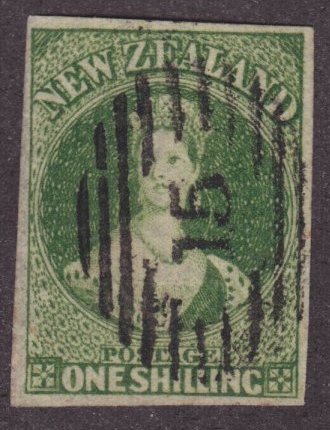
Discussion - Member to Member Sales - Research Center

Discussion - Member to Member Sales - Research Center

Then you feel the two offending items between finger and thumb and realise that both sides are identical, and you have not got a mint stamp, but rather a reprint on glossy paper.
The stamps were pictured as sent on Delcampe, but not described as reprints, and I think they should have been. In the same batch there arrived a similar, but far more expensive stamp, which appears to be genuine, but now I start to worry a bit.
A mistake by the seller? An attempt to defraud? Must I count perforation holes onscreen every time before buying a stamp online? I've bought from this chap before, and everything has seemed to be OK - I've sent him a message through the Delcampe system, and we'll see what his reaction is.
His reaction is: "These stamps are part of a collection going back some 40 years. There are many varieties known and not known because they were produced during the war, with large production difficulties and various types of paper and print quality."
Hm. We need an expert on Italian or Yugoslavian stamps to pronounce on how reliable this is. There's no mention of such varieties in the SG catalogue - does anyone have the relevant Sassone?
The relevant stamps, before they were overprinted by various stamp-issuing entities during the war, are the Yugoslavian King Peter definitives issued 1939-40. These are listed in Gibbons as P12.5 (or, 14 x 18 holes). Under what circumstances would they have been reprinted as P13.25 (or, 15 x 19 holes), without Gibbons or other catalogues mentioning the fact? I am very dubious about Paolo Conedera's catch-all claim above.
A couple of images:


On the left, the genuine Yugoslavian stamp overprinted for the German occupation of Montenegro. On the right, a Yugoslavian stamp of the same type overprinted for the Italian occupation of the Fiume and Kupa Zone. But if you check out the perforation holes, you'll see one extra on each side.
There are very few other sellers of this material on Delcampe. Their used stamps appear to be of the correct perforation.

Login to Like
this post

12:00:28pm
" ... without Gibbons or other catalogues mentioning the fact? ..."
Obviously, this is a suspicious situation, and if I had bought other items from the seller, I'd dig them out and examine them again very carefully.
That said, over the years I have seen many catalogues make mistakes and note that they do not have agents roaming the world, 10x glass a-pocket and deerstalker perched jauntily on their heads. They rely a lot on information sent in to them, as well as stamps submitted to them by agencies.
We rely on their usual diligent listings, but the fact that something is not included is not proof of its fakery. Even with experts, here is also the ego factor that an item's absence from their reference collection is absolute proof of a similar item being bogus.
After all there must have been a moment before that last addition was discovered and added when a reference was thought to be complete.

1 Member
likes this post.
Login to Like.
I see reference in Scott catalogs to 13x12.5 perf overprints for Yugoslavia. This would fit your measurements since perf measurements in Scott are usually rounded up/down to nearest 1/2 (except some situations).

Login to Like
this post

The bizarre habit I have of scanning every new stamp I receive has paid a dismal dividend. Only when a stamp is viewed at many times magnification onscreen does it become evident that all is not as it should be - in this case perforations are at 13.25 when they should be 12.5.
Then you feel the two offending items between finger and thumb and realise that both sides are identical, and you have not got a mint stamp, but rather a reprint on glossy paper.
The stamps were pictured as sent on Delcampe, but not described as reprints, and I think they should have been. In the same batch there arrived a similar, but far more expensive stamp, which appears to be genuine, but now I start to worry a bit.
A mistake by the seller? An attempt to defraud? Must I count perforation holes onscreen every time before buying a stamp online? I've bought from this chap before, and everything has seemed to be OK - I've sent him a message through the Delcampe system, and we'll see what his reaction is.
His reaction is: "These stamps are part of a collection going back some 40 years. There are many varieties known and not known because they were produced during the war, with large production difficulties and various types of paper and print quality."
Hm. We need an expert on Italian or Yugoslavian stamps to pronounce on how reliable this is. There's no mention of such varieties in the SG catalogue - does anyone have the relevant Sassone?
The relevant stamps, before they were overprinted by various stamp-issuing entities during the war, are the Yugoslavian King Peter definitives issued 1939-40. These are listed in Gibbons as P12.5 (or, 14 x 18 holes). Under what circumstances would they have been reprinted as P13.25 (or, 15 x 19 holes), without Gibbons or other catalogues mentioning the fact? I am very dubious about Paolo Conedera's catch-all claim above.
A couple of images:


On the left, the genuine Yugoslavian stamp overprinted for the German occupation of Montenegro. On the right, a Yugoslavian stamp of the same type overprinted for the Italian occupation of the Fiume and Kupa Zone. But if you check out the perforation holes, you'll see one extra on each side.
There are very few other sellers of this material on Delcampe. Their used stamps appear to be of the correct perforation.

Login to Like
this post
Silence in the face of adversity is the father of complicity and collusion, the first cousins of conspiracy..
29 Dec 2016
12:00:28pm
re: Spotted a fake - now what?
" ... without Gibbons or other catalogues mentioning the fact? ..."
Obviously, this is a suspicious situation, and if I had bought other items from the seller, I'd dig them out and examine them again very carefully.
That said, over the years I have seen many catalogues make mistakes and note that they do not have agents roaming the world, 10x glass a-pocket and deerstalker perched jauntily on their heads. They rely a lot on information sent in to them, as well as stamps submitted to them by agencies.
We rely on their usual diligent listings, but the fact that something is not included is not proof of its fakery. Even with experts, here is also the ego factor that an item's absence from their reference collection is absolute proof of a similar item being bogus.
After all there must have been a moment before that last addition was discovered and added when a reference was thought to be complete.

1 Member
likes this post.
Login to Like.

re: Spotted a fake - now what?
I see reference in Scott catalogs to 13x12.5 perf overprints for Yugoslavia. This would fit your measurements since perf measurements in Scott are usually rounded up/down to nearest 1/2 (except some situations).

Login to Like
this post

